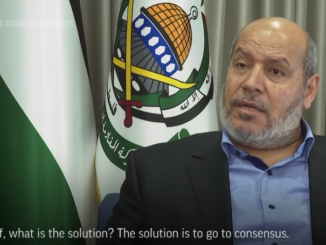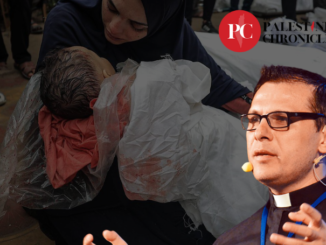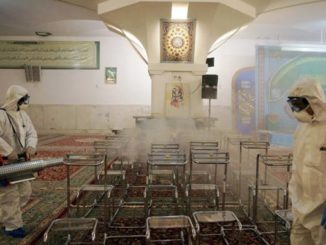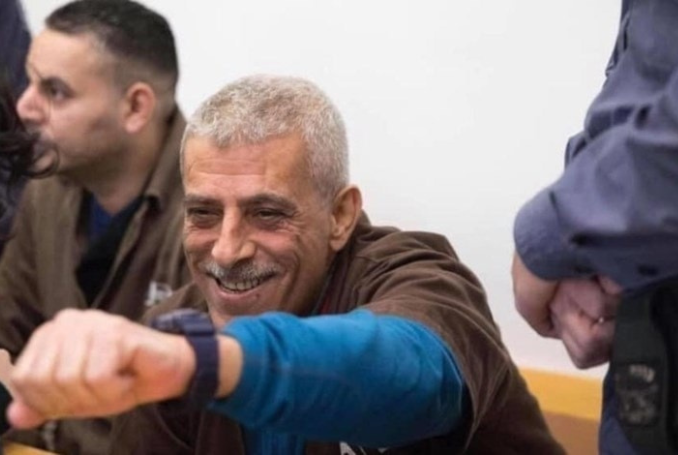
Assassinated through cancer and its deprived treatment, culminating a near four decades in occupation jails, Walid’s martyrdom will be felt within and beyond the prison cells of occupation.
The twin tasks of liquidating Resistance and snuffing its brightest lanterns have their ways and means in the rulebook of Zionist colonization.
These are painfully well documented: whether subjecting entire communities to genocidal murder, as in Gaza, or reportedly setting its international agents to tasks of clandestine poison, as with late revolutionary Wadi’ Haddad.
Yet this mission, as in Gaza, perpetually fails. Seeking to eliminate Resistance, it rises further, like pouring kerosine onto lit candles. Killing a historic sequence of Palestinian leaders only heightens their presence among the masses, with Ghassan Kanafani and Shireen Abu Akleh cases in point.
Political prisoner Walid Daqqa joined them on April 7, 2024. Assassinated through cancer and its deprived treatment, culminating a near four decades in occupation jails, Walid’s martyrdom will be felt within and beyond the prison cells of occupation.
‘Total Resistance’
Imprisoned since 1984, Walid’s work on the inside resembled the path of “total resistance” attributed to Kanafani by his friend Fadle al-Naqib: revolutionary cadre, novelist, poet, painter and songwriter.
The Popular Front for the Liberation of Palestine (PFLP) hailed its fallen commander as “comrade, leader, thinker, writer, inspiration and great theoretician,” and the first prolific writer of the Palestinian political prisoners’ movement.
Even fatherhood became, to him, a mode of resistance, with his seed ingeniously smuggled out of the prison and resulting in the birth of his daughter Milad (“birth”) in 2020.
Himself deprived of meeting her in the flesh, she appeared at her mother Sana’s side, his comrade and wife a tireless fighter for his freedom on the outside. To Milad, he’d write: “You are the most beautiful escape… my message to the future.”
This is Milad, born to Walid Daqqa through sperm smuggled from Israeli prisons. Although Walid's sentence ended a year ago, Israel kept him imprisoned, enduring injustice and torture for nearly 40 years.
Milad will not be able to embrace her father ?? pic.twitter.com/h6VdMjVyBy— Aisha ?? (@aisha_c10) April 7, 2024
For those who knew him, and particularly for younger generations of Palestinians churned through the prison system, Walid appeared as a guiding light. In one short story, “Uncle, give me a cigarette,” Walid narrates an encounter with a young inmate attempting to get to grips with life in the cell:
“I looked at him and imagined that he was my own son, such as fate had not yet wanted to bring into the world. I wanted with every strain of my being to hug him and as these paternal feelings surged through me, I felt an overwhelming desire to cry. But I hid my feelings. I did not want to shatter the image of the man that he wanted now to become. I walked over to him, so as to shake his hand as a comrade, and a rival, asking.
“’How are you, fighter’?”
Walid Daqqa.. The Prisoner.. The Witness and the Martyr.
Despite our warnings and other prisoner organizations about his health condition…
The prisoner Walid Daqqa passes away as a martyr in Israeli occupation hospitals, bearing witness to the ongoing… + pic.twitter.com/dP8CU9O9Ok
— Addameer – الضمير (@Addameer) April 8, 2024
‘Great Thinker, Human and Leader’
The deep imprint Walid left on new and old comrades emerges from remembrance of their time together as cellmates.
Imprisoned in Gilboa prison in 2010, Syrian political prisoner and musician Fida’ Alshaer remembered “beautiful moments” as he led his comrade cellmates in building an oud, shaping the complexly-built instrument out of scrap wood and smuggled items.
Walid had been among the prisoners most keen on having the opportunity to set his poetry to music and the two jointly wrote a musical play, Parallel Time, based on Walid’s novel. Building and looking after the oud was itself an arduous mission, with scouts on the doors looking out for wardens.
When the authorities finally did uncover the operation in musical resistance, Walid – whose sentence was already significantly lengthier than the others – took on the role of a Palestinian Spartacus, claiming that the work was his alone and bearing the brunt of the regime’s brutal reprisals.
Personifying its central characters, the story of the confiscated oud spread through the jail system. Freed PFLP prisoner Asim Ka’abi remembered:
“They took the oud and threw Walid into an isolation cell for a week. He was fined, mistreated, and sent to another prison, because apparently making instruments is not allowed. He wrote about this and someone brought the story out of the prison.”
To Asim, Walid was “a great thinker, human and leader.” At the time of his death, “he had been awaiting the prisoner exchange deal but had no luck. He was martyred while waiting to embrace his daughter Milad.”
Today one of Palestine's most famous writers, academics and artists Walid Daqqa was killed in Israeli prison after being deprived the right to health care: pic.twitter.com/FtqwAiPvAR
— The Freedom Theatre (@freedom_theatre) April 7, 2024
Virtual Death Row
With Walid’s diagnosis of bone marrow cancer and intensification of chronic lung disease in 2022, the callousness of the Zionist regime was laid bare, denying him potentially lifesaving treatment.
When, in early 2023, Walid suffered a stroke, prison authorities refused to transfer him to an appropriate hospital for 11 days, exacerbating his condition immensely.
Though he had served his sentence, the willful neglect of the occupation placed him on a virtual death row.
Speaking to his comrades and family members, or reading his many literary contributions to the Palestinian cause offers no sense that the jailor could claim to have pacified Walid’s voice and commitment.
Zionism’s jailors had sought and even predicted that the steadfast would be broken into submission. Yet, as Wisam Rafeedie writes, “those who banked on Palestinian prisoners’ singing the Hatikva (Israeli national anthem – PC) and raising the Zionist flag now witness his companionship of a comrade, through the fence that separates visitors, over the long years of incarceration.”
Written amidst the torment of repeatedly denied freedom, the pledge of Walid Daqqa is the Spartacist rallying cry of all who resist: “I will continue to dream despite the bitterness of reality.”
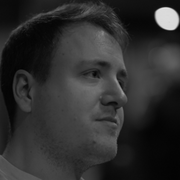
– Louis Brehony is a musician, activist, researcher and educator. He is author of the book Palestinian Music in Exile: Voices of Resistance (2023), editor of Ghassan Kanafani: Selected Political Writings (2024), and director of the award-winning film Kofia: A Revolution Through Music (2021). He writes regularly on Palestine and political culture and performs internationally as a buzuq player and guitarist. He contributed this article to The Palestine Chronicle.

